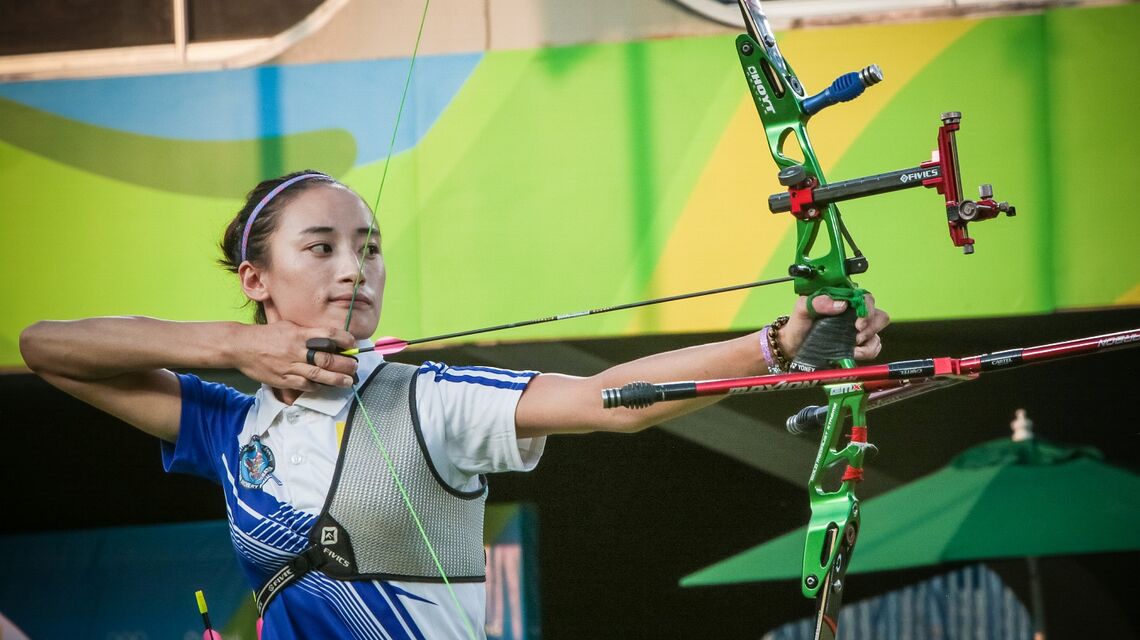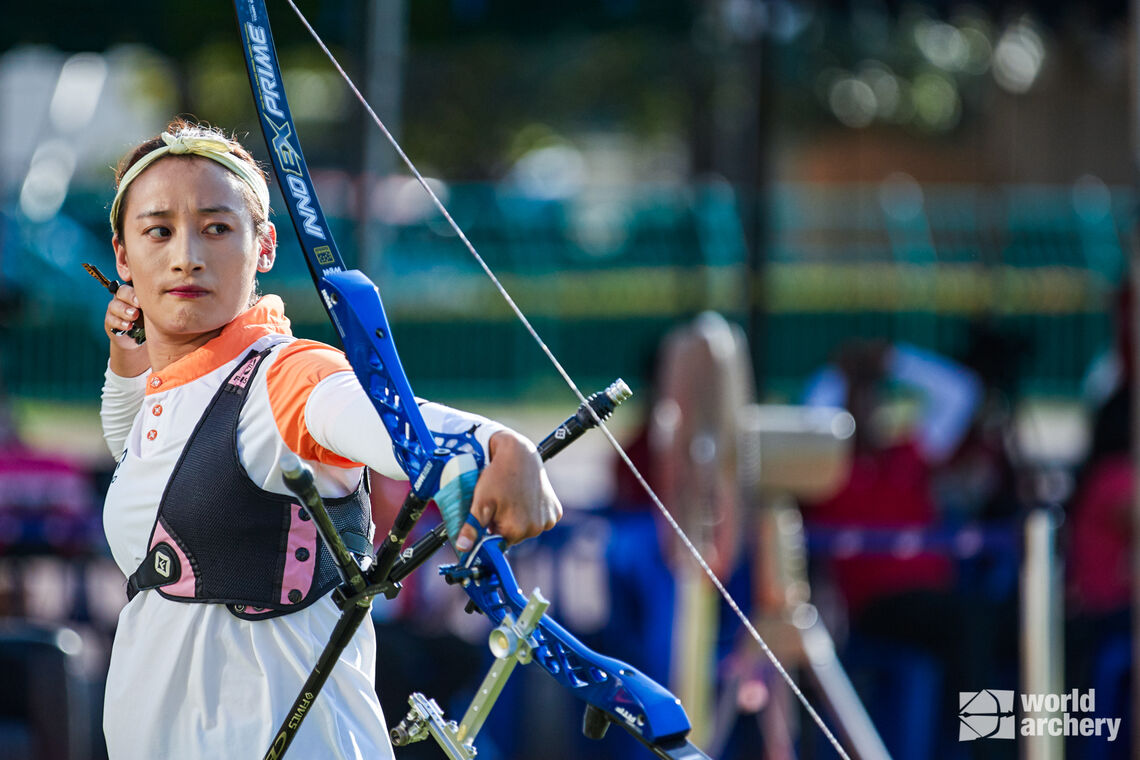Karma and the changing narrative of archery’s feel-good story in Bhutan

It has been over a year since Karma became the first athlete from Bhutan to win a quota place to the Olympic Games.
That happened at the Asian continental qualifier in Bangkok, in November 2019. The then-29-year-old took a come-from-behind victory in a pivotal quarterfinal, shooting a perfect 10 in a shoot-off against Malaysia’s Nur Aliya Ghapar to secure the ticket.
Bhutan has been sending archers to the Olympics for some time – and Karma herself competed at Rio 2016.
But the country has only been included in the lineup lately, after receiving one (or more) of the coveted universality invite spots that the International Olympic Committee and World Archery dole out each Olympiad. In recent years, there have been three of those invites available per gender. But for Tokyo 2020, that number has dropped to two.
Bhutan’s archers might have received one of them – but they also might not.
After so many years of a free quota for the small Himalayan nation, which lists (traditional) archery as its national sport, it was time for the country’s archery squad to step up and win a place outright.
Karma did just that. And yet she couldn’t quite believe it.
“Before, I never even used to get two [set] points. So I’m really happy to compete with other archers, and I’m really lucky with my coach,” she said, scattering across subjects, after the success in Bangkok.
Coach Young Sook Park shot at the Los Angeles 1984 Olympic Games and finished 17th as a member of the Korean team at its breakout Olympics.
Coincidentally, those were the same Games where Bhutan’s archers made their debut at the world’s largest sporting event.
Having taken Malawi’s Areneo David to make that country’s archery debut at Rio 2016, Young Sook – or Sally, as she is known – became head coach in Bhutan in early 2018.
Her contract was scheduled to end in August. But after the delay of the Olympics due to COVID-19, the Korean Olympic Committee and Korean Archery Association gifted the funds required to extend her stay.
Sally has already turned Karma from a participant into a contender.
“I underwent rigorous training under the guidance of Coach Young Sook," Karma said. "I worked really hard and trained daily – both physically and mentally. Qualifying an Olympic place motivated me to train more and harder. It made me realise that nothing is impossible if you really work."

There haven’t been many tournaments in 2020 for archers to track their progress – except online events, an area where Bhutan has been extremely active.
In August, Karma shot a 656-point 72-arrow 70-metre ranking round in a remote tournament run by a group in Japan. That score is a far cry from the 588 she posted at the Rio 2016 Olympic Games – and even the 603 she put in during the tournament in Bangkok, where she qualified the spot for Tokyo.
Critically, it’s way above the minimum level she’ll need to achieve if she wants to go to next summer’s Games. For recurve women, that score is set at 605.
“Although I secured a quota place for the Olympics, I still need to attain my [minimum qualifying score]. I was preparing to participate in an event in Bangladesh to obtain it, but due to the pandemic, it got postponed,” said Karma.
“In Bhutan, we had a lockdown for almost a month. Nevertheless, I practised shooting short distance at my home. The federation started organising virtual tournaments with other countries to keep us active – and that motivated me to work even harder.”
Karma also shot in the first remote stage of the 2021 Indoor Archery World Series; 18-metre competition is a new format in Bhutan, where indoors is not a known or necessary discipline due to the climate.
Online events fill a gap while the world continues to battle the COVID-19 pandemic. But pretty soon, Karma will have to perform on a real competition field.
Assuming the level she has displayed in these practice events translates to the level she’ll display on the tournament line, next year could be an exciting one for Bhutan – and modern archery in a country that remains focused firmly on the sport’s past.
Karma is already garnering significant attention from her national press.
She has an opportunity to turn one of archery’s feel-good stories into a really good story – if she can begin to deliver tangible international results at the highest levels of competition.
“After securing that quota place for the Olympics, and although I’m very much excited, I am nervous at the same time,” she said. “I have been practising really hard for it. And I wish that all my hard work will show in my results at the Olympics.”
Whatever happens, Karma has already reset expectations in Bhutan.
This beautiful mountain nation, which measures itself on the happiness of its 750,000 citizens, no longer needs a free ride to the Olympics. Now, it has archers with the talent and ability to win a ticket for themselves.












